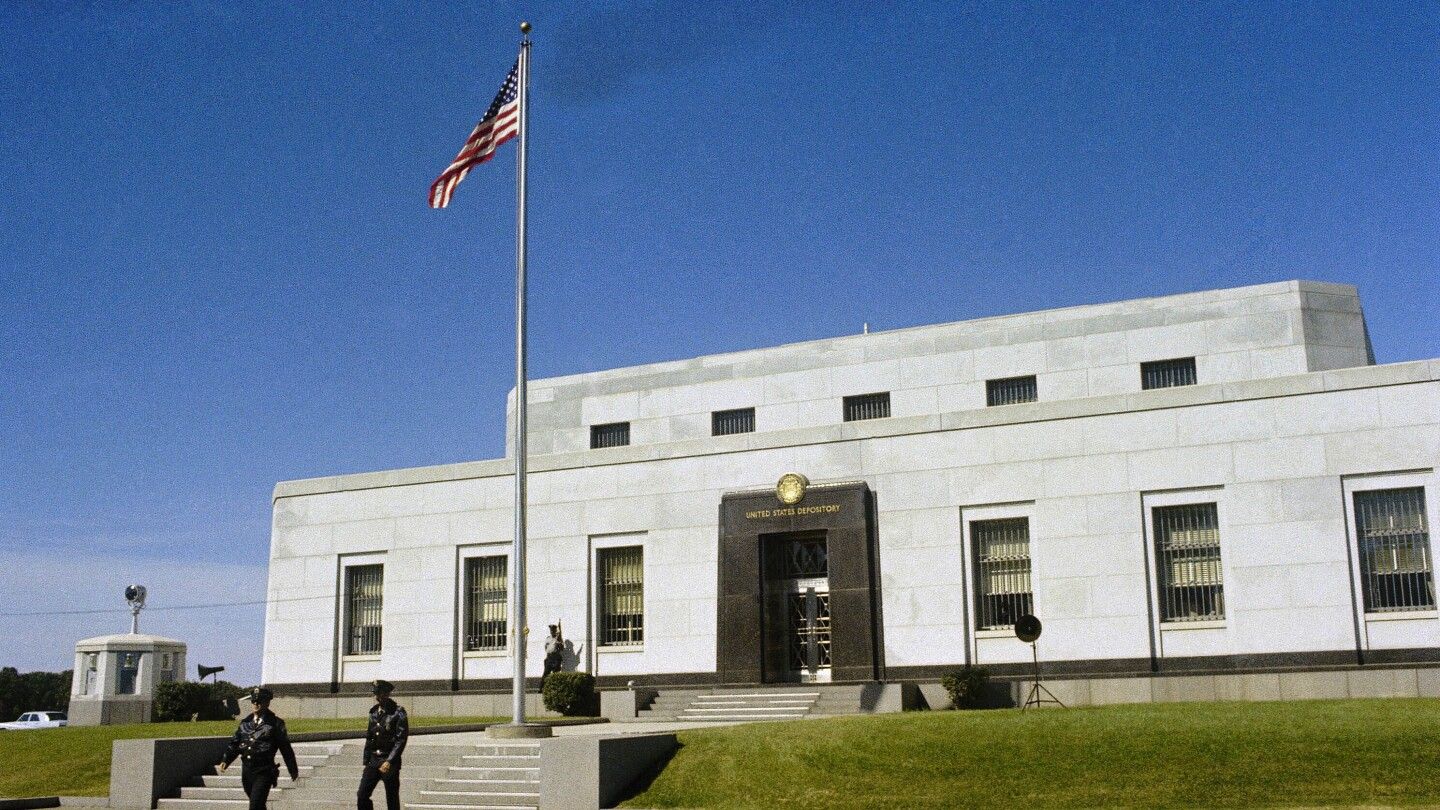Introduction: The Fort Knox Mystery
Fort Knox has long been a symbol of America’s wealth and financial security. Housing over 147 million ounces of gold, it’s one of the world’s most secure and storied vaults. Yet, calls for a full audit of its gold reserves are growing louder, led by high-profile figures like Elon Musk and Donald Trump. Their demands have reignited debates about financial transparency, the true value of US gold holdings, and the future of global monetary systems21.
Why Fort Knox’s Gold Matters
The Legacy and the Numbers
- Gold’s Role: For centuries, gold has symbolized wealth and trust. Central banks worldwide hoard it as a hedge against economic uncertainty.
- US Holdings: The United States holds about 8,100 tonnes of gold, the largest national reserve globally. Roughly half of this is stored at Fort Knox, accounting for about 147 million ounces21.
- Central Bank Strategy: Central banks hold about 17% of all gold ever mined, using it to balance reserves and manage risk.
The Audit Controversy: Why Now?
A History of Secrecy
- Last Full Audit: The last comprehensive audit of Fort Knox occurred in 1953. Since then, only brief, partial reviews have taken place-in 1974 and 2017.
- Transparency Concerns: This decades-long gap has fueled speculation about whether the gold is actually there, prompting Musk and Trump to demand a thorough, independent audit21.
What’s at Stake?
If the Gold Is There:
- The US Treasury currently values its gold at just $42 per ounce, a relic from the past. At today’s market price (around $2,900 per ounce), the Fort Knox stash would be worth an estimated $760 billion instead of the official $11 billion21.
- A successful audit and revaluation could instantly strengthen the US balance sheet, restore faith in the financial system, and bolster the dollar’s reputation.
If the Gold Is Missing:
- The fallout could be severe. Gold is seen as a “safe haven” asset, and its absence would shatter trust in the US government and the dollar.
- Foreign nations holding US dollars might panic and sell off their reserves, potentially triggering a dollar crash and runaway inflation.
- Investors could flock to alternative stores of value, such as gold itself or digital assets like Bitcoin21.
The Bigger Picture: US Debt, the Dollar, and the Mar-a-Lago Accord
America’s Debt Dilemma
- Rising Debt: The US national debt has ballooned to $36 trillion, raising concerns about sustainability. Even Federal Reserve Chairman Jerome Powell has called the current fiscal path “unsustainable”21.
- The Dollar’s Strength: High US interest rates have kept the dollar strong, but this also makes American exports more expensive and fuels global imbalances.
The Mar-a-Lago Accord and Asset Monetization
- New Economic Strategy: The US is exploring new ways to stabilize its finances, including tariffs, debt reduction, and asset monetization.
- Gold Revaluation: Updating the value of gold on the US balance sheet could inject hundreds of billions in assets, improving fiscal health and potentially supporting new monetary policies21.
What If the Audit Backfires?
The Paradox of Panic
- Shortfall Scenario: If the audit reveals missing gold, it could spark global panic. However, a surge in gold prices might actually benefit the US government, especially if the missing gold is insured.
- Political Motives: Some analysts suggest the audit push could be a calculated move, not just a transparency exercise. It may be designed to shift focus toward alternative assets or to trigger a controlled monetary reset21.
The Bitcoin Angle: A Strategic Pivot?
From Gold to Digital Gold
- Abandoning the Gold Standard: The US left the gold standard in 1971, so the dollar is no longer directly backed by gold. This raises the question: why audit Fort Knox now?
- Rise of Digital Assets: Both Trump and Musk have shown interest in Bitcoin and other blockchain-based assets. Trump has floated the idea of building a strategic Bitcoin reserve, positioning it as a potential hedge or even as collateral to address national debt21.
US Bitcoin Holdings: The US government already holds about 200,000 Bitcoins (worth around $19 billion), mostly seized through law enforcement. There’s speculation the government could buy more, potentially controlling up to 5% of all Bitcoin in circulation21.
Is This a Prelude to a Monetary Reset?
- Trust Shift: If the audit undermines confidence in gold reserves, it could accelerate a shift toward decentralized digital assets.
- Strategic Play: Weakening trust in gold could make Bitcoin and other cryptocurrencies more attractive, aligning with the interests of influential proponents like Musk and Trump21.
- Global Impact: Such a move could reshape global finance, challenging the dollar’s dominance and introducing new forms of reserve assets.
Key Takeaways
- The Fort Knox audit is about more than just counting gold bars. It’s a flashpoint in debates over US fiscal health, the dollar’s future, and the rise of digital assets.
- A successful audit could restore trust and unlock massive value. A shortfall, however, could trigger financial upheaval-but might also serve broader strategic goals.
- The push for transparency may be part of a larger play. Whether it’s about asset revaluation, a pivot to Bitcoin, or a broader monetary reset, the implications are global and profound21.
Conclusion: Transparency or Tactic?
The calls by Elon Musk and Donald Trump for a Fort Knox gold audit are more than just demands for transparency-they’re signals of potential shifts in the world’s financial order. Whether the audit confirms America’s gold reserves or exposes cracks in the system, the outcome will reverberate through markets, central banks, and even the emerging world of digital assets. As the US grapples with debt, inflation, and changing global dynamics, the Fort Knox saga could mark the beginning of a new era in money and trust.
Ready to stay informed on global finance and the future of money? Subscribe for more insights and analysis.

